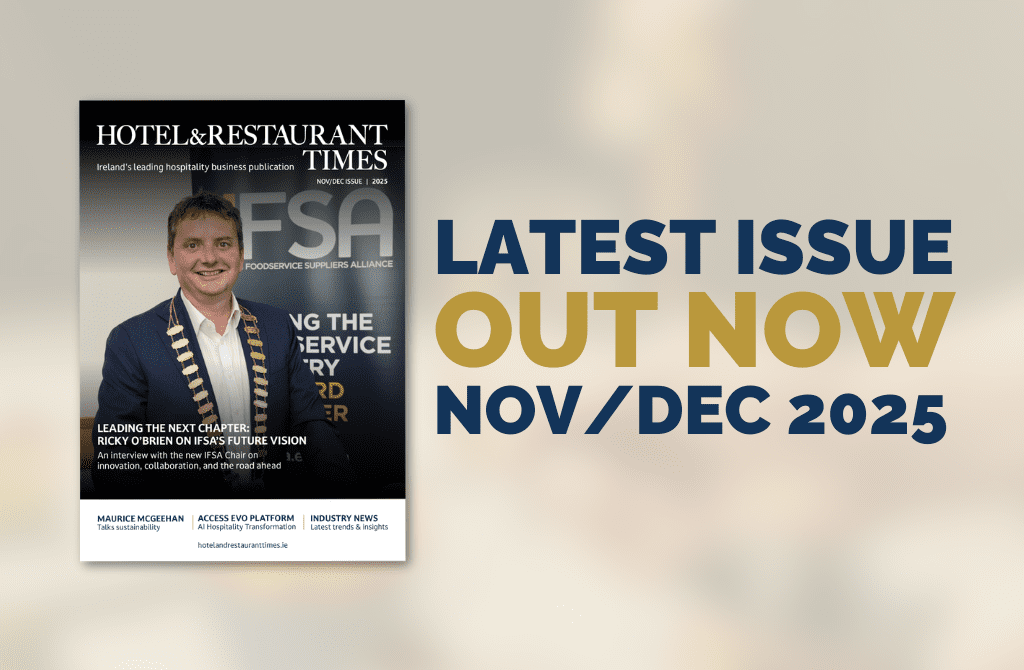
Alison O’Connor, Sunday Times Columnist took aim at the catering industry’s desperate pleas to Government to reinstate the 9% VAT rate on its services.
On Sunday, 13 th of September last, West Cork-born columnist Alison O’Connor (herself, brought up in the milieu of the fine seafood restaurant in Bantry that was O’Connor’s Seafood) took aim at the catering industry’s desperate pleas to Government to reinstate the 9% VAT rate on its services.
The Flawed €700 Million Argument
While her concern for a VAT rate correction affecting all of the sector (including fast-food outlets) is certainly a fair point, the argument that a VAT reduction would result in a loss of €700 million is risible and made completely devoid of the context of saving and/or creating Irish jobs in our largest indigenous industry.
The claimed loss of exchequer income doesn’t stand at all for two reasons: First of all, the huge number of restaurant closures chops that figure down to something far less than the notional €700 million. According to the RAI, over 600 restaurants have closed this year so far in the face of rapidly rising running costs. Secondly, increasing the VAT rate in the hospitality sector by 50% is doing long-term damage to the tourism industry.
Since the change last year, we now have the second-highest such rate in the EU and it makes Ireland an even more expensive destination than it already was.
Demonisation of the Sector
Ms O’Connor refers to the proposed VAT reduction as a “leg-up to the hospitality industry”, but when our 13.5% VAT rate is so out of step with our competitor fellow EU members, it’s surely less of a leg-up and more of a correction.
“The government parties do not actually know how effective it might be,” she goes on to say. That is true but what is certain is that it will allow restaurants the opportunity to reduce their prices. When so many restaurants are at breaking point, it’s logical that they will be highly motivated to offer better value so as to attract more business. Her portrayal of the sector as one that is always moaning at every turn and of being a “flea in the ear” of every politician is tantamount to demonisation of the sector that she was brought up in.
The hospitality sector that she portrays in her piece is a devious one that has fine-tuned its lobbying skills during the Covid lockdown when its representatives were constantly “bellyaching on the airways”
Short-Term Thinking vs Long-Term Damage
She hammers home the importance of that non-existent €700 million to the country by quoting the Department of Finance, who have qualified the proposal to bring the 13.5% VAT rate back to 9% as an “enormous fiscal transfer of taxpayers’ money to the sector which the evidence available does not support.”
Once again, it’s a fantasy-world of fiscal transfers when the reality on the ground is that our largest indigenous industry is being attacked through government thinking that is alarmingly short-termism in its skewed logic.
She does make a valid point in finding the fact that a multinational like McDonald’s will be able to benefit from a VAT correction/reduction, even though they made pre-tax profits in excess of €42 million in 2024. She also agrees that many restaurants need help but feels that such help must be targeted.
The Bigger Picture: Competitiveness and Survival
The problem is that such targeting is a difficult thing and if a particularly profitable sector of the industry looks like it’s going to do well out of the proposed VAT changes, then is there really anything wrong with that? Is it not far better to have a healthier and more profitable hospitality sector than a sick one?
We live in a country that has a top-heavy centralised system of governance and taxation. Targeting is made all the trickier because of that. The new tourist tax that a number of Councils are planning to introduce soon will add another layer of costs to businesses in hospitality, albeit one which the consumer will be paying directly. There again, the question arises as to who will ring-fence the money collected so that it goes directly back into the local industry and facilities.
We are, however, stuck with the system of governance that we’ve got and broadly-applied VAT changes that will affect the multimillionaires and the high-demand minority restaurants will bring positive changes to the industry as a whole, making Ireland’s hospitality and tourism sector more competitive, creating more wealth and attracting more people to work in it.












